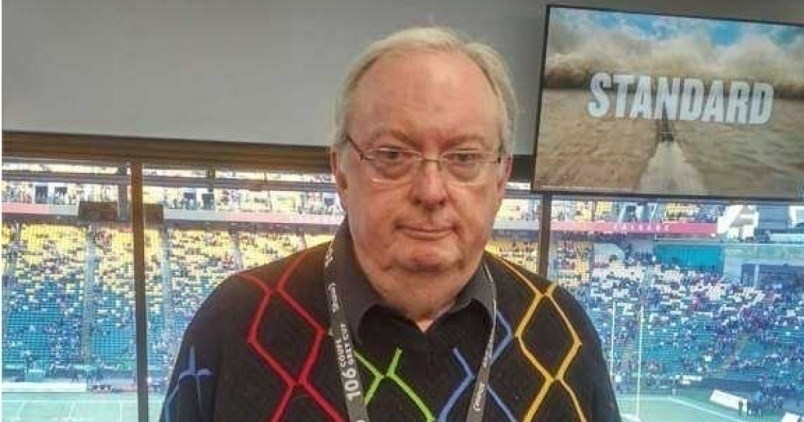The Banjo Bowl was an awful game. There is nothing I want to write about the Sept. 10 game, which the Saskatchewan Roughriders lost 54-20 to the Winnipeg Blue Bombers. Instead, I will be writing about the Riders' sickness problems and consequences.
It was not until the game was starting that I heard the Riders had problems with the stomach flu. It was after the game when I actually learned how sick the team was going into the game.
Head coach Craig Dickenson said 15 players and 7-8 coaches, including himself, were sick. He said he was as sick as he had “ever been for about 12 hours”.
Of the players in Winnipeg, four were unable to even start the game and two more had to drop out by halftime.
Third string quarterback Jake Dolegala flew in the night before as backup quarterback, Mason Fine, could not play.
Two more players were driven by Team President Craig Reynolds to Winnipeg on Sunday.
Cody Fajardo said the whole offensive line was sick. He continued that they had not eaten since leaving Regina and were getting IVs to get on the field.
Numerous other players, including Fajardo, were not sick but did not feel well. Fajardo said he was proud of how a lot of guys gutted it out.
Still the situation was a medical catastrophe. Teams are to have 45 players on the active roster to start a game. Though one-third of the team was sick, I heard no discussion of postponing the game.
The CFL has an elaborate COVID-19 protocol that, when the Riders had too many players and coaches with COVID-19 this summer, meant they could not play the Argonauts as scheduled and the game was postponed a day.
I have been unable to find a CFL protocol on an emergency situation that is neither COVID-19 nor weather related.
In 2019 the Riders won a game against the Alouettes under the weather protocol. The Riders were leading when the game was delayed by a storm for more than an hour after the mid-point of the third quarter.
The rationale for the arbitrary time for cancellation is set out in the CFL weather protocol:
When a player has participated in almost three quarters of a game, a toll has been taken on his body. When he has also sat in the locker room for an hour because of a weather delay, his muscles can tighten and stiffen up, the start of a recovery process that ideally spans several days. To ask him to return to action too soon, especially when there may be little time for a long warm up, could make an athlete more vulnerable to injury.
The weather protocol does not allow games to be resumed the next day for player safety reasons unless it is a playoff or Grey Cup game. For those games finishing the game takes priority over player safety. I find the inconsistency baffling and wrong.
In looking up the NFL rules in 2019 I found they have a more flexible approach.
Under Rule 17 – Emergencies, Unfair Acts - the Commissioner can:
If, in the Commissioner’s opinion, it is reasonable to project that the resumption of an interrupted game would not change its ultimate result or adversely affect any other inter-team competitive issue, he is empowered to terminate the game.
More likely, subsequent Articles in Rule 17 will be followed for a game interrupted by an emergency:
Article 8 If, under emergency circumstances, an interrupted regular-season or post-season game cannot be completed on the same day, such game will be rescheduled by the Commissioner and resumed at that point.
Article 9 In instances under these emergency procedures which require the Commissioner to reschedule a regular-season game, he will make every effort to set the game for no later than two days after its originally scheduled date, and he will attempt to schedule the game at its original site. If unable to do so, he will schedule it at the nearest available facility. If it is impossible to schedule the game within two days after its original date, the Commissioner will attempt to schedule it on the Tuesday of the next calendar week in which the two involved clubs play other clubs (or each other). Further, the Commissioner will keep in mind the potential for competitive inequities if one or both of the involved clubs has already been scheduled for a game following the Tuesday of that week (e.g., Thanksgiving).
No one wants to postpone a game. The Riders already suffered this year by having the Argo game postponed a day which meant their next game with B.C. was only five days away. Yet player safety should be important. If one-third of a team’s players are sick, postponement deserves to be considered.


